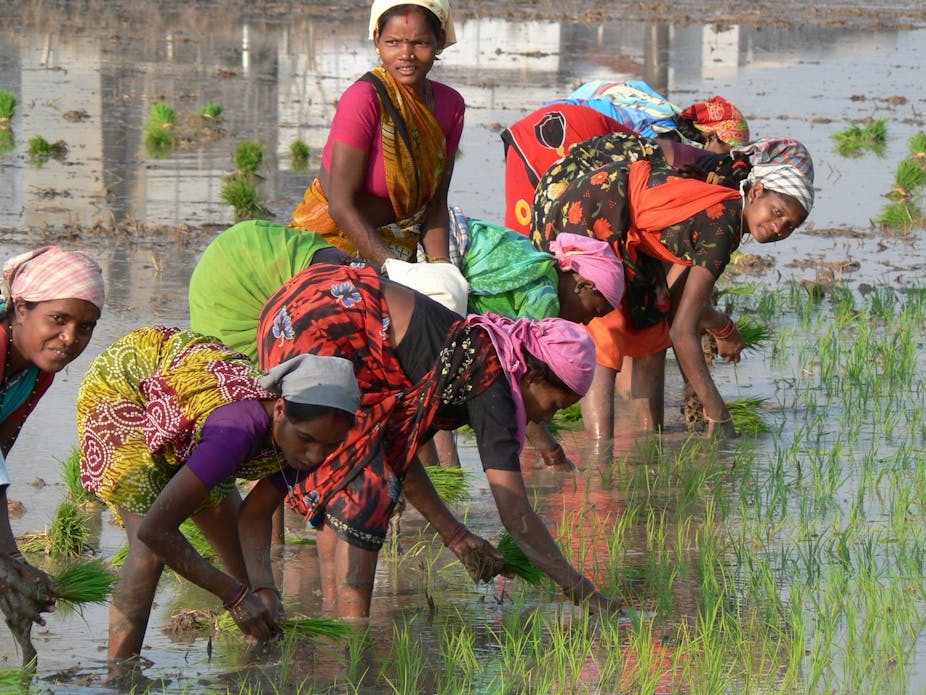The recent World Trade Organisation (WTO) meeting in Bali concluded on Saturday morning with an agreement on what is being termed the “Bali package”. So it seems there is still life in the WTO yet.
Director General Roberto Azevedo has hailed this agreement as the most important progress on multilateral trade since the organisation was created in 1994.
Critics of the Bali package however, argue that it provides little of substance for developing countries generally and for the least developed in particular. Instead, it simply reflects the continuing ability of leading economies to achieve their own free-market objectives while offering few tangible benefits to developing countries.
Both of these views contain strong elements of truth. The Bali meeting can be significant and yet still a let-down.
It is now more than 12 years since this current round of trade negotiations started, amid much optimism about the future of the multilateral trading system. But things soon stagnated in a web of entrenched positions and competing agendas. At several points, it appeared the primary objective of some members was to stymie any progress at all. The WTO has, at times, appeared to be dead in the water.
The US, for example, has preferred in recent years to sign free trade agreements directly with strategic partners, outside of WTO control. Major trade deals are planned with the EU and countries across the Pacific.
In this context, Bali represents a muted triumph for the multilateral trade agenda and the resurrection of the almost moribund negotiations. There is even a distinct possibility that this entire round of talks might be concluded reasonably soon.
The continued relevance of the WTO matters, unequivocally. Even if the talks were to result in failure, our current system of international trade regulation provides a substantial bastion against global protectionism.
The WTO is also the principal base camp for recovery from the great recession and the return to global prosperity. Even the most powerful economies are not seeking its imminent collapse and a return to the perils of bilateralism where the weak, the poor and the small become increasingly excluded from the global economy.
Four areas
The Bali talks secured agreement in four areas.
Trade Facilitation: This is intended to reduce the cost of international trade by improving the speed, efficiency and transparency of customs procedures. There are also rules that will help trade in goods from land-locked economies. The benefits are calculated to reduce trade costs by 10 to 15%, worth some US$400 billion to US$1 trillion.
Agriculture: The most important deal gives developing countries protection from WTO litigation when hoarding staple crops to improve food security. An interim solution was agreed that such stockholding would not be challenged until a permanent solution can be agreed by 2017. However, ministers failed to agree a deal that would have made it easier for developing countries to export their cotton.
Development: The most important development agreement is the commitment to give developing countries duty-free and quota-free access to developed markets for at least 97% of products. Least developed countries will also benefit from improved preferential access to these markets via a “services waiver”. Agreement has been reached on “rules of origin” guidelines too. The new rules will mean developing countries can identify their own goods more easily, and so will be able to boost exports as they will qualify for preferential treatment in richer nations.
Regular Work: Several decisions were made in Bali on day-to-day WTO issues, including “non-violation” in intellectual property; duties on electronic commerce; special consideration for small economies; Aid for Trade; and trade and technology transfer.
Tangible progress
In terms of tangible outcomes, Bali represents progress. It might not be particularly significant in the context of the original ambition for these talks, but it is still a major step forward for multilateralism.
The package is likely to have very limited benefits for many countries but, more importantly, it signals a renewed commitment by WTO member countries to working together at a time of profound global recession. On a more personal level, this represents a personal triumph for the WTO’s new Director-General Roberto Azevedo.
Don’t expect things to suddenly speed up. An organisation that depends upon consensus among 159 member countries and a plethora of special interests will never be particularly efficient. But the Bali meeting may turn out to be of even greater symbolic importance than the agreement itself, as it has breathed new life into WTO talks and given ministers the impetus to finish what they started.

